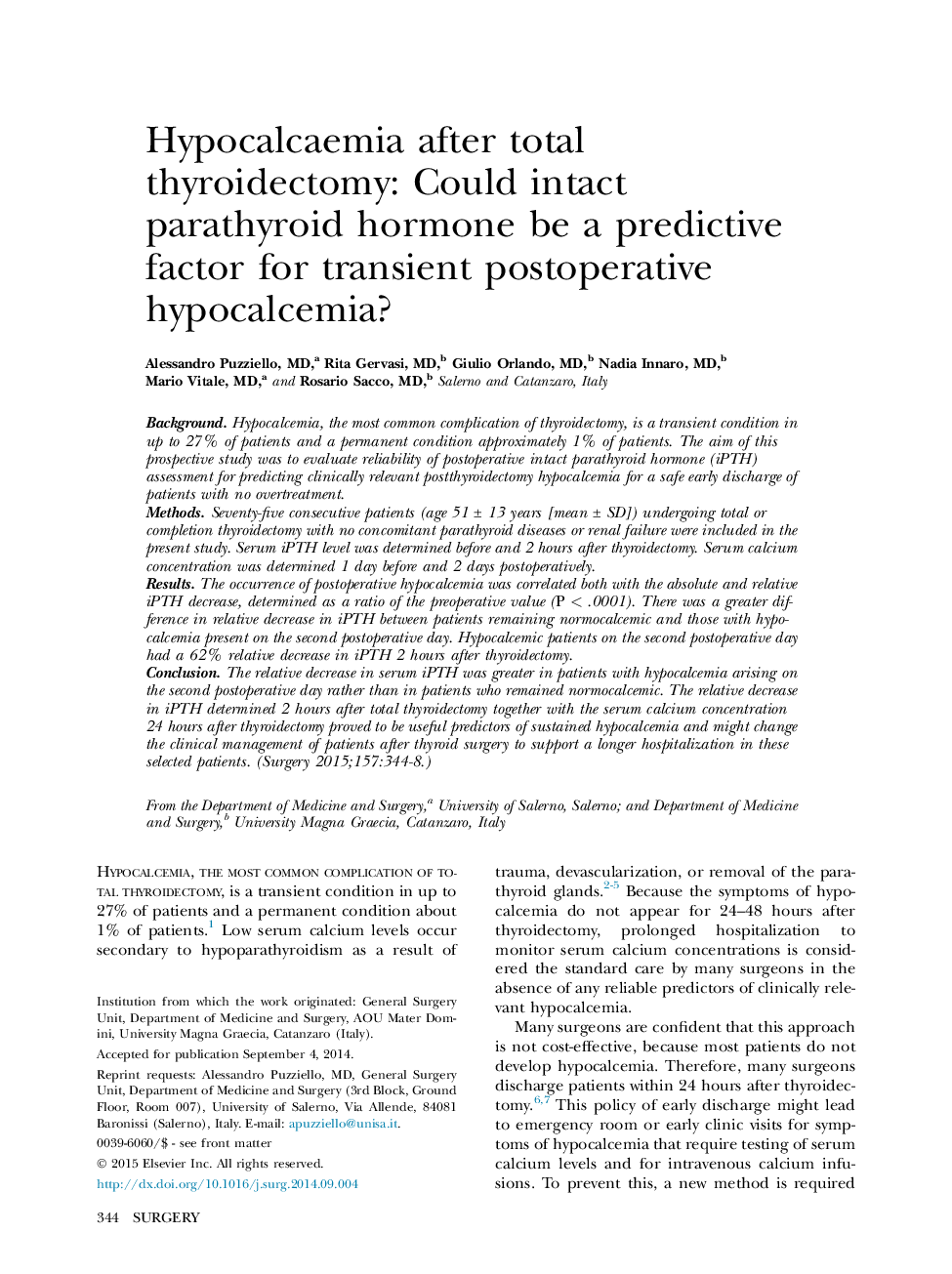| Article ID | Journal | Published Year | Pages | File Type |
|---|---|---|---|---|
| 6255502 | Surgery | 2015 | 5 Pages |
BackgroundHypocalcemia, the most common complication of thyroidectomy, is a transient condition in up to 27% of patients and a permanent condition approximately 1% of patients. The aim of this prospective study was to evaluate reliability of postoperative intact parathyroid hormone (iPTH) assessment for predicting clinically relevant postthyroidectomy hypocalcemia for a safe early discharge of patients with no overtreatment.MethodsSeventy-five consecutive patients (age 51 ± 13 years [mean ± SD]) undergoing total or completion thyroidectomy with no concomitant parathyroid diseases or renal failure were included in the present study. Serum iPTH level was determined before and 2 hours after thyroidectomy. Serum calcium concentration was determined 1 day before and 2 days postoperatively.ResultsThe occurrence of postoperative hypocalcemia was correlated both with the absolute and relative iPTH decrease, determined as a ratio of the preoperative value (P < .0001). There was a greater difference in relative decrease in iPTH between patients remaining normocalcemic and those with hypocalcemia present on the second postoperative day. Hypocalcemic patients on the second postoperative day had a 62% relative decrease in iPTH 2 hours after thyroidectomy.ConclusionThe relative decrease in serum iPTH was greater in patients with hypocalcemia arising on the second postoperative day rather than in patients who remained normocalcemic. The relative decrease in iPTH determined 2 hours after total thyroidectomy together with the serum calcium concentration 24 hours after thyroidectomy proved to be useful predictors of sustained hypocalcemia and might change the clinical management of patients after thyroid surgery to support a longer hospitalization in these selected patients.
